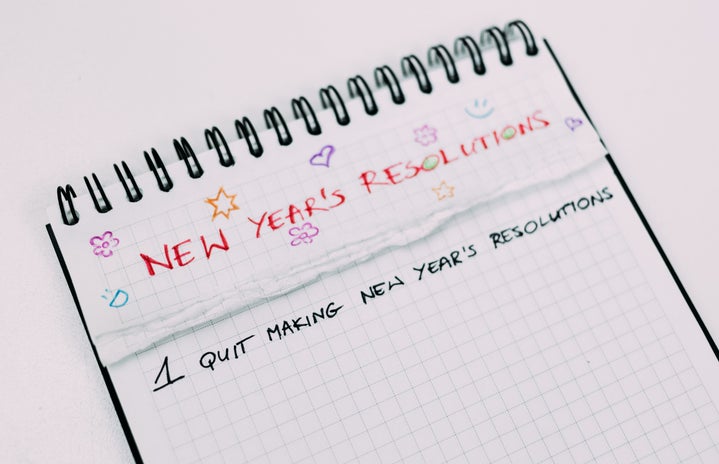The new year is an opportunity for a fresh start with hope of bettering yourself. This has been the case for centuries with the origins of new year resolutions being traced back to pledges made by the Babylonians around 4,000 years ago. By the 18th century, it had become an increasingly common activity. However, new year resolutions may be not as positive as they first appear, and their influence vary greatly depending on individual approach. For some, new year resolutions provide motivation to make meaningful changes to improve lifestyle whilst for others, it promotes a critical or obsessive mindset. This allows us to question whether resolutions are really a ‘healthy’ way to start the year?
The new year is a perfect opportunity for annual self-reflection, encouraging positive changes and habits. This gives you a chance to evaluate your own personal lifestyle and identify potential areas of improvement. As well as the focus on the individual, the collective nature of developing and achieving resolutions can provide motivation to finally commit to making the improvements you have been putting off. Such unity may help develop a greater sense of belonging as individual goals can be conquered with support from others. Resolutions are also a way of demonstrating control in a chaotic world. Having a central focus allows you to think about the difference you can make instead of dwelling on the infinite factors which are out of your hands.
However, this is only the case if the resolutions set are realistic. With many goals being made over the Christmas period, their development is often rushed with little planning on how these will be achieved. This is likely to result in short term success which may end in self-criticism and disappointment. It is also important to consider that change is rarely immediate; it takes time and energy to cultivate new, lasting habits. Expectations of overnight improvements cause inevitable failure and discourages further attempts to change in the future. There is also the question as to what constitutes positive change. This varies for everyone and suggests that the self-evaluation which occurs at the start of a new year is not always constructive and is at risk of being critical. The focus on the 1st January as the starting date for the process of change means that many feel pressured to begin the journey of achieving their goals at the start of the year. Consequently, many do not have the foundations to initiate such change as the drive and willingness to pursue this may not be as strong as other times in the calendar year. It also makes the need to achieve goals over-whelming, creating the sense that this will either happen now or never.
Yet for some this definitive date provides the ideal opportunity and motivates them to make positive lifestyle changes. If this is the case, there is no reason to avoid making goal at this time of year. However, the reality is that only 8% of new year resolutions are achieved so it is important not to feel too disappointed if your aims are not met. It is important to remember that new year is not the only opportunity for self-evaluation and if the pressure of the new year is too much, there is no need to succumb. Ultimately, the choice to make a new year resolution is a personal one and depends on individual mindset.
If you have set a goal for 2023 or plan on doing so, here are a few tips to aid success:
- Ensure resolutions are realistic and achievable – using the SMART (specific, measurable, achievable, realistic and time-based) framework can be really helpful in this.
- Plan how you are going to achieve your aims by focusing on small goals to encourage long term change.
- Remember progress in not linear and there are factors which can’t be controlled. This means that you should be aware of failures and identify how you will overcome them – resilience is key and small improvement is better than no improvement.


